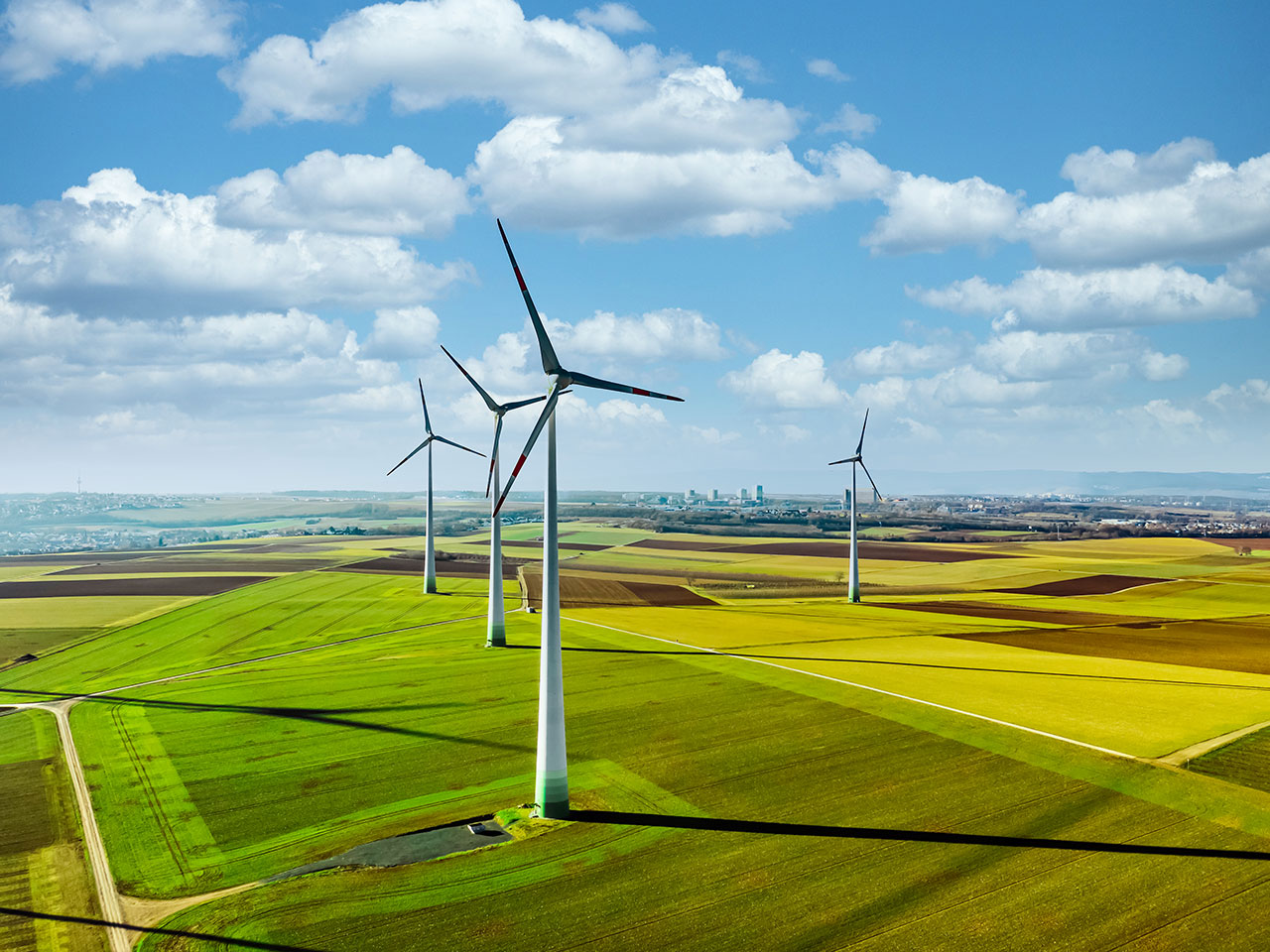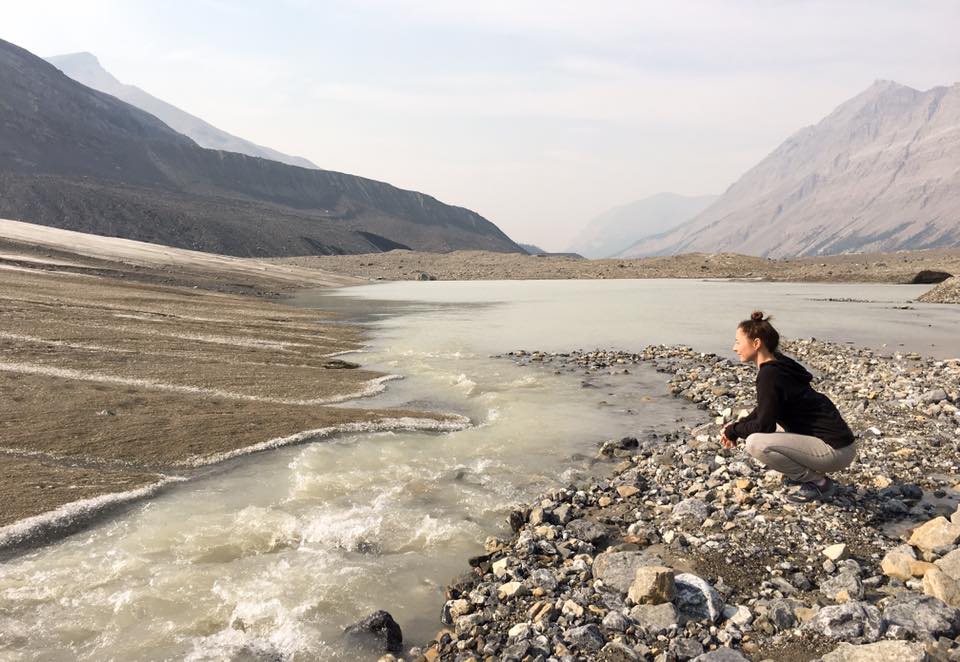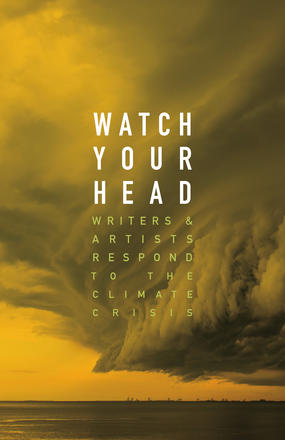
Media
The City Imagines: Writers and the Climate Crisis
In Watch Your Head, poems, stories, essays, and artwork sound the alarm on the present and future consequences of the climate emergency. Ice caps are melting, wildfires are raging, and species extinction is accelerating. Dire predictions about the climate emergency from scientists, Indigenous land and water defenders, and striking school children have mostly been ignored by the very institutions – government, education, industry, and media – with the power to do something about it.
Join The Word on the Street Toronto, editor Kathryn Mockler, and anthology contributors Carleigh Baker, Simone Dalton, Christine Leclerc, and Carrianne Leung for a conversation on calls to act to address the climate crisis we all face.
The City Imagines series is presented by The Word On The Street, a national celebration of storytelling, ideas, and imagination.
Headwater Stream Network Length: Underestimated and Highly Sensitive to Climate Change
Stream networks expand and contract through time due to streamflow and stream network hydraulic scaling factors, impacting aquatic ecosystem habitat. Streamflow variability is projected to increase with climate change, so we used an analytical framework and data compilation to learn how streamflow and stream network length variability relate.

Feds should consider impact of forests, urbanization in water agency’s mandate, say experts
Parliament Today, July 8, 2022Online
URL: https://www.politicstoday.news/parliament-today/
With Ottawa’s promise to plant two billion trees largely on track, the impact of “forest cover change” should be a key consideration of the forthcoming Canada Water Agency, says one expert.

Are Individual Carbon Offsets Really Worth Buying?
Chatelaine, April 20, 2022Online
URL: https://www.chatelaine.com/living/carbon-offsets-worth-buying/
Many companies offer services that supposedly take carbon out of the atmosphere to counteract your emissions. But is it the best way to help the environment?

Planet at the crossroads
Ricochet, December 5, 2019Online
URL: https://ricochet.media/en/2842/planet-at-the-crossroads
As COP25 gets underway in Madrid, we need to understand that international environmental law can save lives
Coach House Books
October 7, 2020
9781552454121
A warning, a movement, a collection borne of protest.
In Watch Your Head, poems, stories, essays, and artwork sound the alarm on the present and future consequences of the climate emergency. Ice caps are melting, wildfires are raging, and species extinction is accelerating. Dire predictions about the climate emergency from scientists, Indigenous land and water defenders, and striking school children have mostly been ignored by the very institutions – government, education, industry, and media – with the power to do something about it.
Writers and artists confront colonization, racism, and the social inequalities that are endemic to the climate crisis. Here the imagination amplifies and humanizes the science. These works are impassioned, desperate, hopeful, healing, transformative, and radical.
This is a call to climate-justice action.
Oilywood
by Christine Leclerc
Nomados Editions
978-1-927751-00-8
"Christine Leclerc’s Oilywood, well-deserved winner of the 2014 bpNichol award, operates like a cut-up filmstrip of biographical and autobiographical reflections on coastal life in BC’s Burrard Inlet. The action is prompted by increasingly public and dubiously legal tar sand/oil industry incursions into the region. Spliced into this film strip’s em-dash cuts are a ticker tape of oil giant Kinder Morgan’s news releases and a scattering of terse, italic interjections—'hear something,' 'fish on rocks,' 'who gets to belong here,' 'shifting baseline.'"
—Andy Verboom, the Town Crier
Variability of stream extents controlled by flow regime and network hydraulic scaling
by Dana A. Lapides, Christine D. Leclerc, Hana Moidu, David N. Dralle, W. Jesse Hahm
Published by Hydrological Processes
February 7, 2021
Stream networks expand and contract through time, impacting chemical export, aquatic habitat, and water quality. Although recent advances improve prediction of the extent of the wetted channel network (L) based on discharge at the catchment outlet (Q), controls on the temporal variability of L remain poorly understood and unquantified. Here we develop a quantitative, conceptual framework to explore how flow regime and stream network hydraulic scaling factors co-determine the relative temporal variability in L (denoted here as the total wetted channel drainage density). Network hydraulic scaling determines how much L changes for a change in Q, while the flow regime describes how Q changes in time. We compiled datasets of co-located dynamic stream extent mapping and discharge to analyze all globally available empirical data using the presented framework. We found that although variability in L is universally damped relative to variability in Q (i.e., streamflow is relatively more variable in time than network extent), the relationship is elastic, meaning that for a given increase in the variability in Q, headwater catchments will experience greater-than-proportional increases in the variability of L. Thus, under anticipated climatic shifts towards more volatile precipitation, relative variability in headwater stream network extents can be expected to increase even more than the relative variability of discharge itself. Comparison between network extents inferred from the L-Q relationship and blue lines on USGS topographic maps shows widespread underestimation of the wetted channel network by the blue line network.
URL: https://onlinelibrary-wiley-com.proxy.lib.sfu.ca/doi/full/10.1002/hyp.14079
Biography
Christine Leclerc lives in Coast Salish Homelands / Burnaby, B.C. She studies Climate Science as an MSc student in Simon Fraser University's Climate Research Lab. Leclerc is a past member of the Hydrology Research Group and has served on the non-profit boards of Embark Sustainability and Sierra Club BC. She is also an Expert Reviewer with the Intergovernmental Panel on Climate Change.
Recognition/Reconnaissance
YHS Award for Best Undergrad Presentation | Professional
This award is for a presentation on headwater stream network sensitivity to climate change made at the Canadian Geophysical Union's 2021 Student Conference.
Undergraduate Student Research Award | Professional
The NSERC Undergraduate Student Research Awards (USRA) in Universities program nurtures student interest and develop potential for a research career in the natural sciences and engineering. USRAs are also meant to encourage students to undertake graduate studies in these fields. It is an opportunity to gain research experience in an academic setting, while receiving financial support.
2014 bpNichol Chapbook Award | Professional
The bpNichol Chapbook Award recognizes excellence in Canadian poetry in English published in chapbook form within Canada. The prize is awarded to a poetry chapbook judged to be the best submitted. The author receives $4,000 and the publisher receives $500. Awarded continuously since 1986, the bpNichol Chapbook Award is currently administered by the Meet the Presses collective.
Past Talks
2020 American Geophysical Union Fall Meeting
Modeling the Hydrologic Impacts of Climate Change and Environmental Feedbacks at the Catchment Scale
Remote, December 10, 2020
The Word On The Street Festival Toronto
The City Imagines: A discussion of the climate crisis with Watch Your Head anthology contributors
Remote, January 21, 2021




